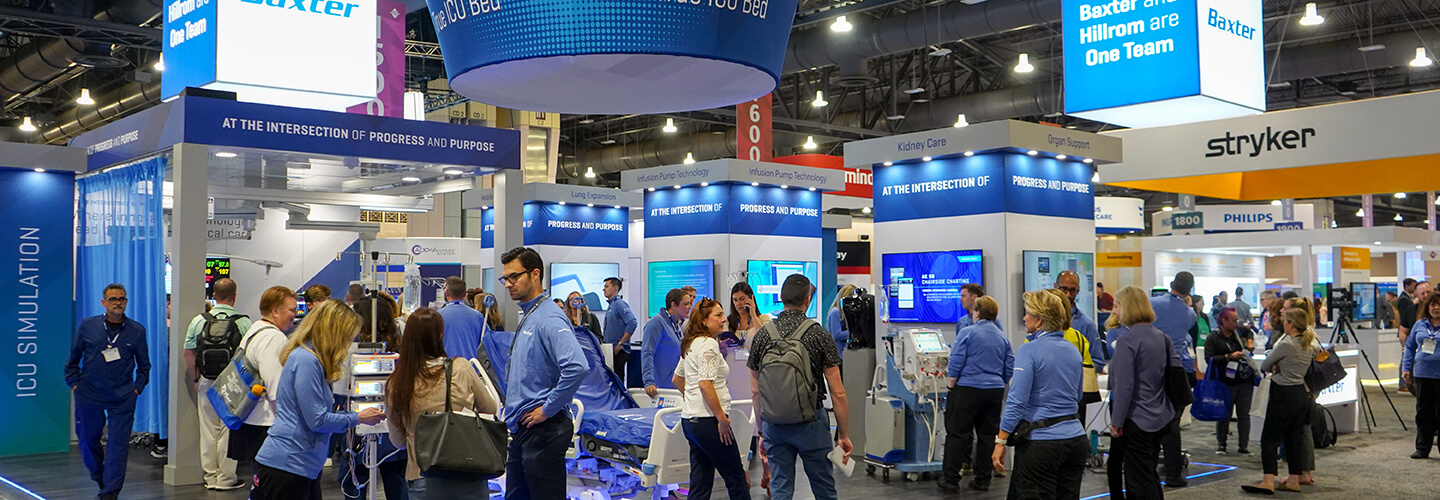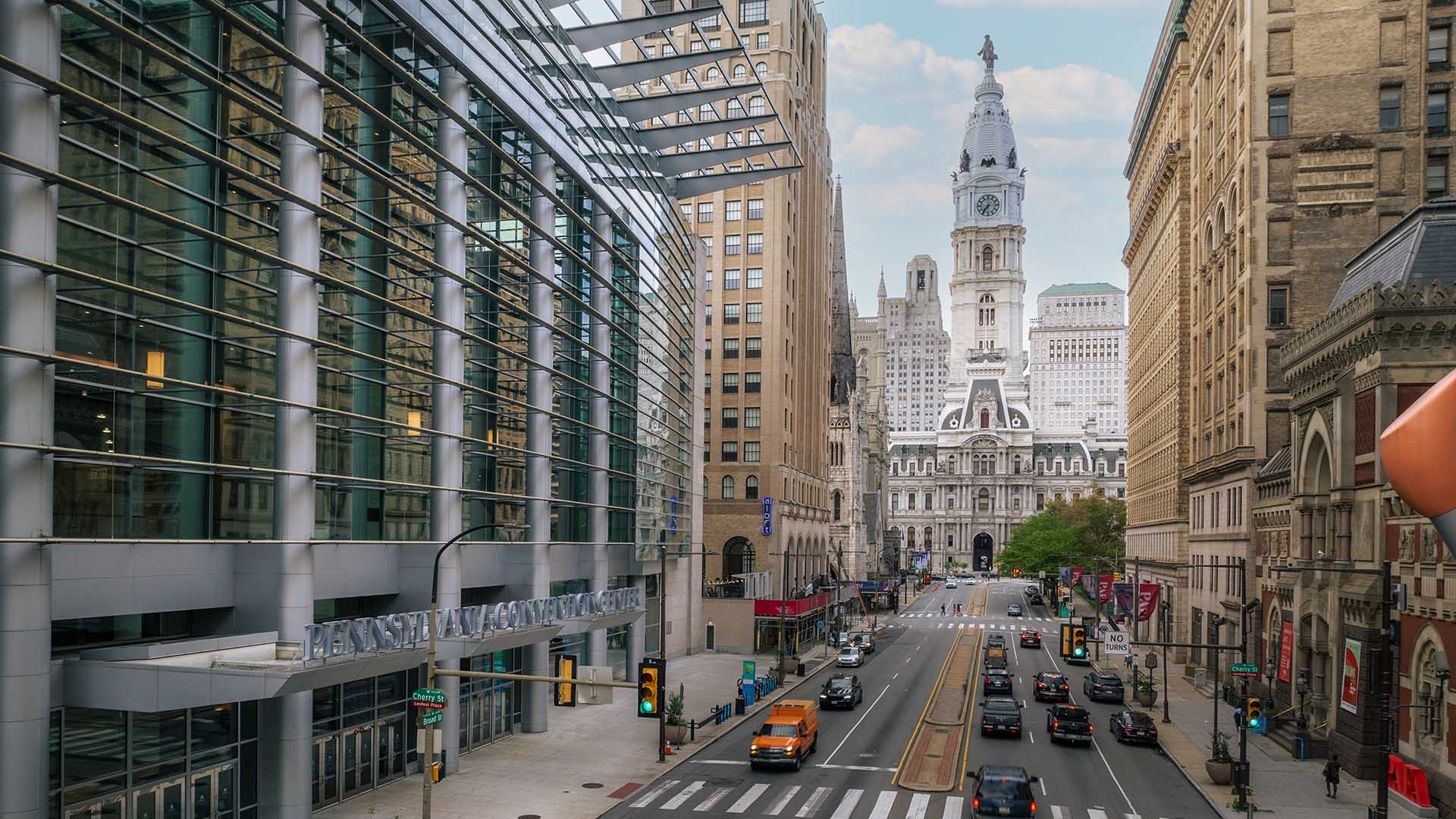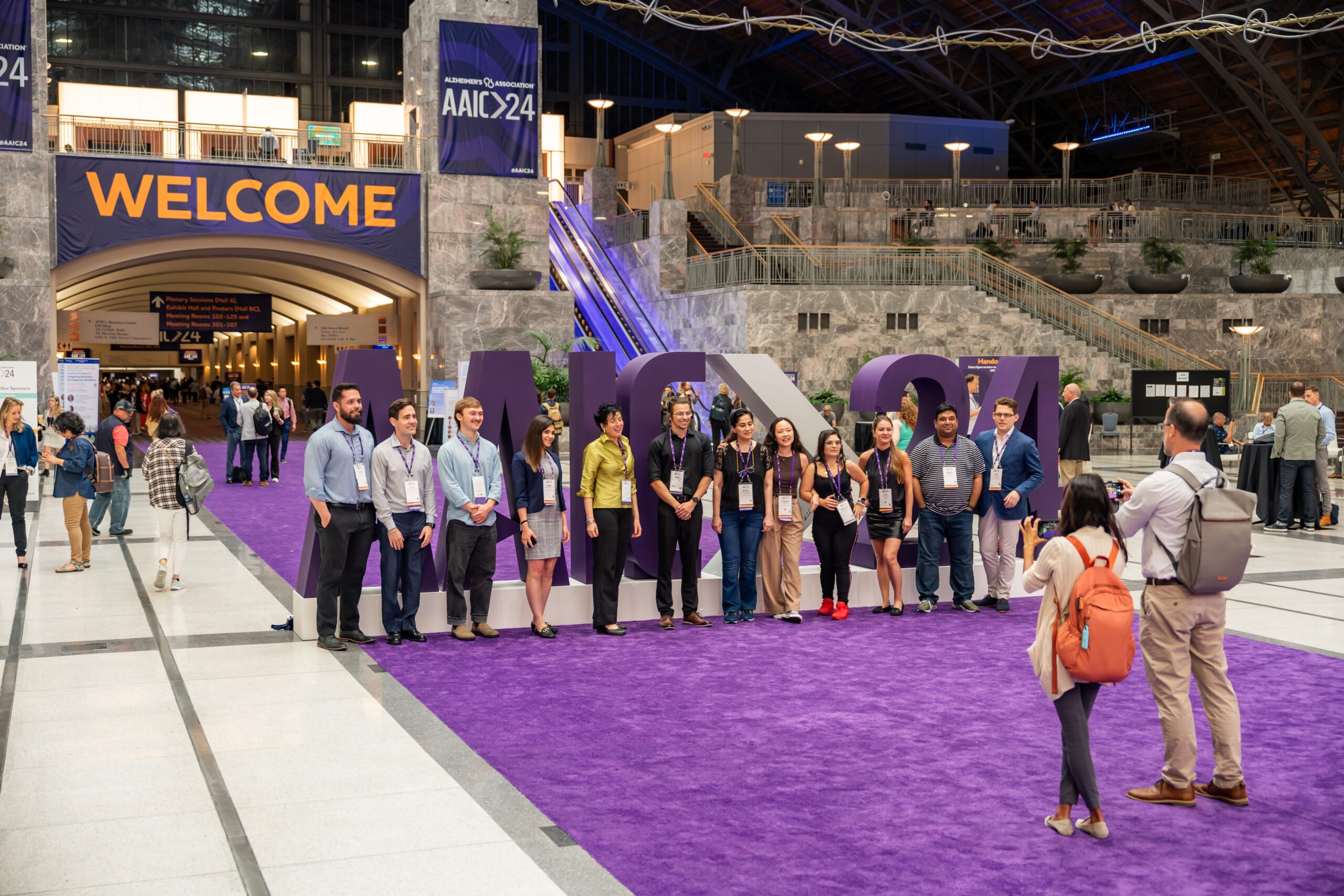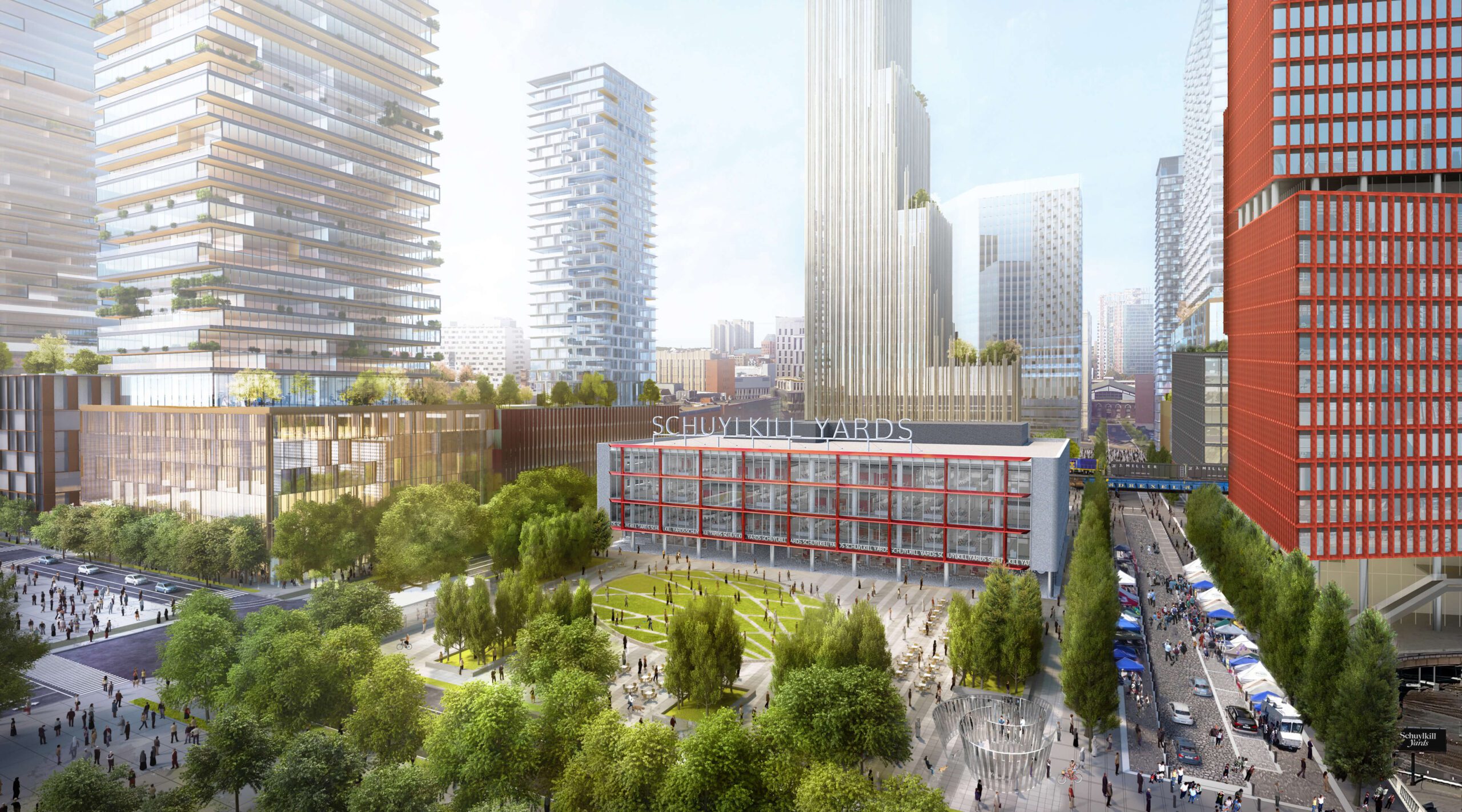
Philadelphia is one of the nation’s leading centers for innovation, talent, and sustainability.
A result of strategic investments, Philadelphia’s vitality is driven by a talented workforce that has helped deliver a strong economy. The city exudes a vibrant character and energy along with a commitment to sustainability, creating an ideal location for a meeting or visit.
Philadelphia is undergoing an unprecedented development boom, driven by the city’s tech, educational and medical institutions, and a flourishing life science sector. One of the best places in the country to launch a startup, billions of venture capital dollars have been infused into Philadelphia companies and are supported by the accessibility of angel investors, accelerators, students and professionals in the region.
From later-stage companies like Biomeme, who built technology to rapidly identify COVID-19, to early-stage startups like Katika, an online marketplace that provides a central location for customers to discover Black-owned services, there is no shortage of ideas being brought to life in our region.
Development Projects
Schuylkill Yards
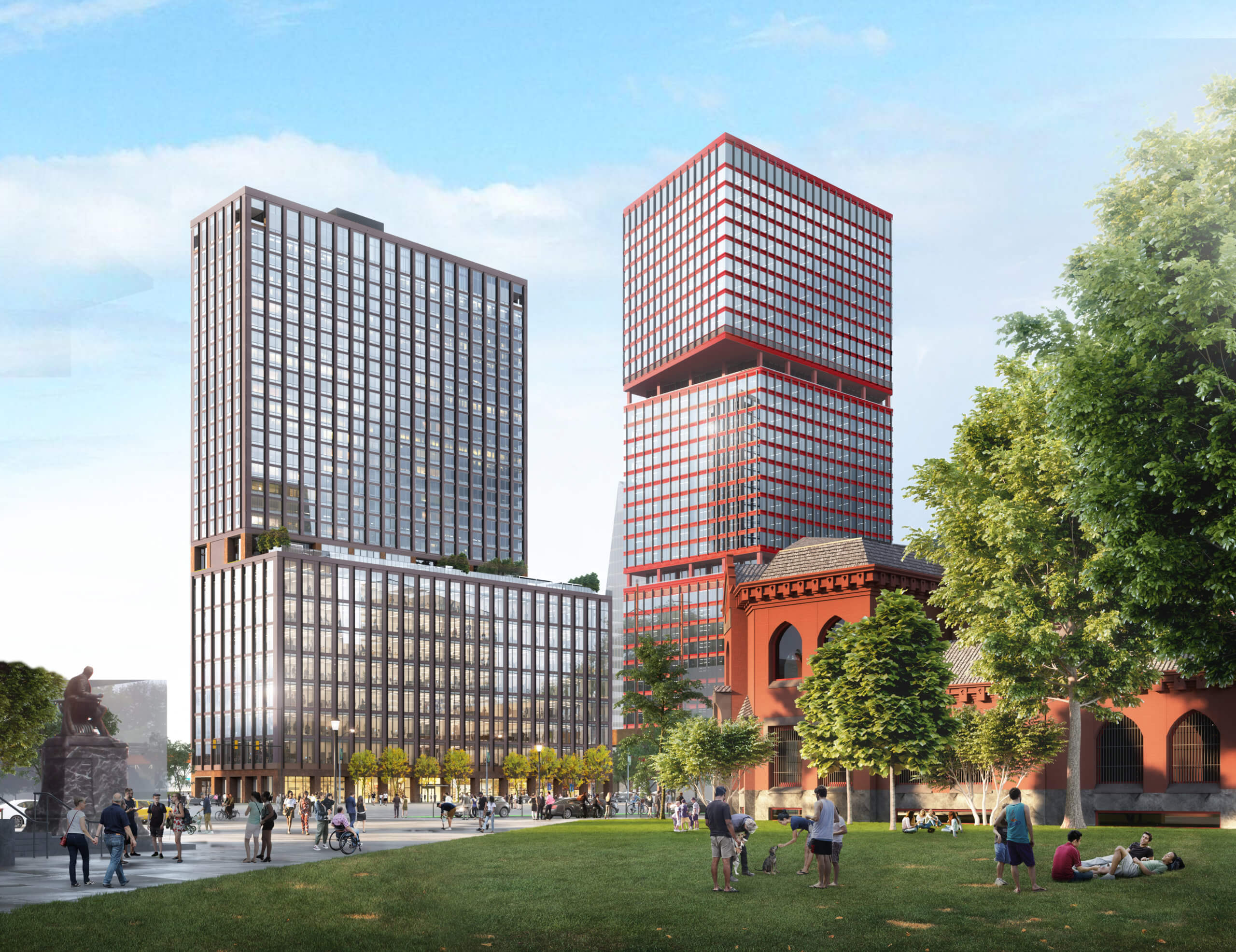
Schuylkill Yards West Tower rendering courtesy of Brandywine Realty Trust.
This 20-year, three-and-a-half-billion-dollar innovation community project by Brandywine Realty Trust will connect to the Philadelphia International Airport and the major cities along the Northeast corridor, making it a key innovation hub on the East Coast. When completed, the network of public spaces will span 14 acres with several new high-rises to be occupied by labs, hotels, retail spaces, residential units and offices.
Already completed is Drexel Square, a 1.3-acre elliptical park across from 30th Street Station, which opened in June 2019. The former Philadelphia Bulletin newspaper building has been renovated as the flagship for companies at the epicenter of innovation and cell and gene therapy and connected health, such as Spark Therapeutics.
The 570,000-square-foot, mixed-use West Tower — Schuylkill Yards’ first vertical tower — is complete and ready for occupancy. West Tower features new life science and innovation lab and office spaces, residential units, retail, and indoor/outdoor amenity spaces. Also recently opened is 3151 Market. The 12-story building will house full floors of chemical and biological lab use, including the potential for GMP and vivarium functions. 3151 Market has climate-responsive design, targeting a low carbon footprint to improve efficiency.
uCity Square
The one-billion-dollar, 6.5 million-square-foot project between the University City Science Center and Wexford Science + Technology features public and mixed-use spaces, including residential units, retail office, lab and clinical space, with the goal of developing a live-work community. Part of the continued expansion of uCity Square, Wexford’s One uCity Square will integrate office, lab and retail spaces in a 13-story high-rise tower with a two-story penthouse, totaling approximately 400,000 square feet. uCity Square also hosts community innovators in its retail spaces, such as Two Locals Brewing Co., Philadelphia’s first Black-owned brewery.
Navy Yard
Philadelphia’s Public-Private Economic Development Corporation (PIDC) and Ensemble/Mosaic revealed their long-awaited Navy Yard Plan, which includes 8.9 million square feet of new life science, commercial, residential, retail and mixed-use development. The partnership between PIDC and Ensemble/Mosaic aims to create a hybrid of suburban and urban design, to create a space where “people come to work excited to create, innovate and play.”
PIDC has been working on a plan for this space since 2000, with more than 150 businesses set for the space. PIDC states their mission is to “spur investment, support business growth, and foster developments that create jobs, revitalize neighborhoods, and drive growth to every corner of Philadelphia.” The plan for this historic location demonstrates the continuation of Philadelphia’s ongoing growth and investments in the life sciences industry, making the city one of the top life science markets in the country.
Bellwether District
Lower Schuylkill Biotech Campus
A new cell and gene therapy complex known as the Lower Schuylkill Biotech Campus is being developed in Southwest Philadelphia. Philadelphia Industrial Development Corp. is overseeing the project and currently reviewing developer proposals. As currently planned, the campus will create one million square feet of biotech production space over forty acres and will produce over 4,000 jobs.
Cutting-Edge Advancements
Investor enthusiasm has been increasing rapidly in Philadelphia due to breakthroughs and progress in the cell and gene therapy, gene editing, and connected health spaces. Amicus Therapeutics has opened a 75,000-square-foot Global Research and Gene Therapy Center of Excellence at 3675 Market Street in uCity Square. Nearby, 3711 Market Street is home to Avid , a wholly owned subsidiary of Eli Lilly, Invisible Sentinel, acquired by France-based bioMérieux, as well as the manufacturing facilities of Spark Therapeutics’ which was recently acquired by Roche. Penn Medicine is leading the world in immunotherapy research with the first gene therapy approved by the FDA, CAR-T Cell Therapy. A personalized cellular therapy, CAR-T cell therapy trains healthy cells to hunt down and eliminate cancer cells.
Research Hub
With trailblazing institutions such as Children’s Hospital of Philadelphia (CHOP), the Wistar Institute, the Hospital of the University of Pennsylvania, and Thomas Jefferson University, along with innovative new startups flourishing in the tech economy, Philadelphia continues to rank in the world’s top cities due to a skilled talent pool and resources.
The Pennovation Center
Opened in September 2016, the Pennovation Center’s goal is to serve society through the advancement of knowledge. The 58,000-square-foot business and technology incubator and lab is designed to foster entrepreneurial activity and help bring research discoveries to market. The Pennovation Center is home to Johnson & Johnson Innovation, JLABS’ JPOD @ Philadelphia, a networking hub that provides training, mentoring and networking programs for local entrepreneurs and accelerates early-stage healthcare breakthroughs and innovations. The University of Pennsylvania will continue to expand its life sciences reach by constructing a new biomanufacturing, research, and lab space in West Philadelphia known as Pennovation Works.
The Pavilion
The Pavilion is a sophisticated and ambitious healthcare building serving as the flagship of Penn Medicine. The $1.6-billion-dollar hospital of the future equals the length of two football fields, with more than 500 private patient rooms, 47 operating rooms and one acre of green space. The high-tech 1.5-million-square-foot facility offers hybrid surgical centers and tele-medical functionality.
Jefferson Health
Thomas Jefferson University plans to expand its biomedical research capacity at its Center City campus to create a research corridor along Locust Street with a 12-story, 225,000-square-foot building devoted solely to research. The project will create space for 56 additional NIH-funded researchers and will be connected to its Life Sciences Building.
Jefferson Health also opened the Specialty Care Pavilion in Center City, known as the Honickman Center. As the epicenter of Jefferson Health’s campus, the building will be the home to the Sidney Kimmel Cancer Center, Vickie and Jack Farber Institute for Neuroscience, and the Jane and Leonard Korman Respiratory Institute.
Public Health Campus at Provident
The Public Health Campus at Provident, is a 290,000-square-foot integrated health and public health campus that is responsive to the holistic needs of individuals and their families, integrating health services with retail and a usable community space. The strong tech landscape continues to extend with success among healthcare and science-based startups, supported by investment from Philadelphia partners and stakeholders. Children’s Hospital of Philadelphia (CHOP) and KIPP Philadelphia Octavius Catto Elementary both operate out of the campus, and there is additional office and educational space to lease.
Comcast NBCUniversal LIFT Labs Accelerator
Powered by Techstars, an organization that runs close to 40 accelerators around the world, the Comcast NBCUniversal LIFT Labs Accelerator was created to offer a concentrated dose of business teaching, mentoring and networking over a 12-week period. LIFT Labs gives talented entrepreneurs access to Comcast NBCUniversal’s network of partners, brands and mentors to foster rapid breakthroughs in connectivity, media and entertainment. Philadelphia is one of the only cities in the country to have a public-private seed fund dedicated to startups.
Biospace at The Curtis Center
401 North Broad
As the headquarters for Biomeme, a leading developer and manufacturer of portable, real-time polymerase chain reaction (PCR) testing solutions, 401 N Broad boasts 44,000 square feet of space for the company’s laboratory, testing, manufacturing, and office operations.
University Place Associates (UPA) U City 3.0
3.0 University Place at 4101 Market Street is a 250,000 square foot lab and office building determined to redefine what it means to be an “amenity space.” The team at 3.0 University Place is committed to bringing entrepreneurs, companies, and start-ups together in an effort to transform industries and fuel innovation. In addition to offering lab space, the building was constructed with sustainable solutions in mind, generating energy savings between 40% and 60%.
SUPRA-EMSCO Project
SUPRA-EMSCO, an office and lab equipment supplier, is a recent project in West Philadelphia where warehouse and office space include a biorepository to store millions of biological samples in state-of-the-art freezers. The bio samples are available for use in cell and gene therapy, as well as immuno-oncology research.
SmartLabs Expansion
Philadelphia-based Gattuso Development Partners and Vigilant Holdings of New York are developing what will be the largest life sciences center in the city when completed. This new center is under construction at 3201 Cuthbert St, and will be a 11-story, 550,000-square-foot research and manufacturing facility. Drexel University and SmartLabs have already leased 45% of the building.
Sustainability
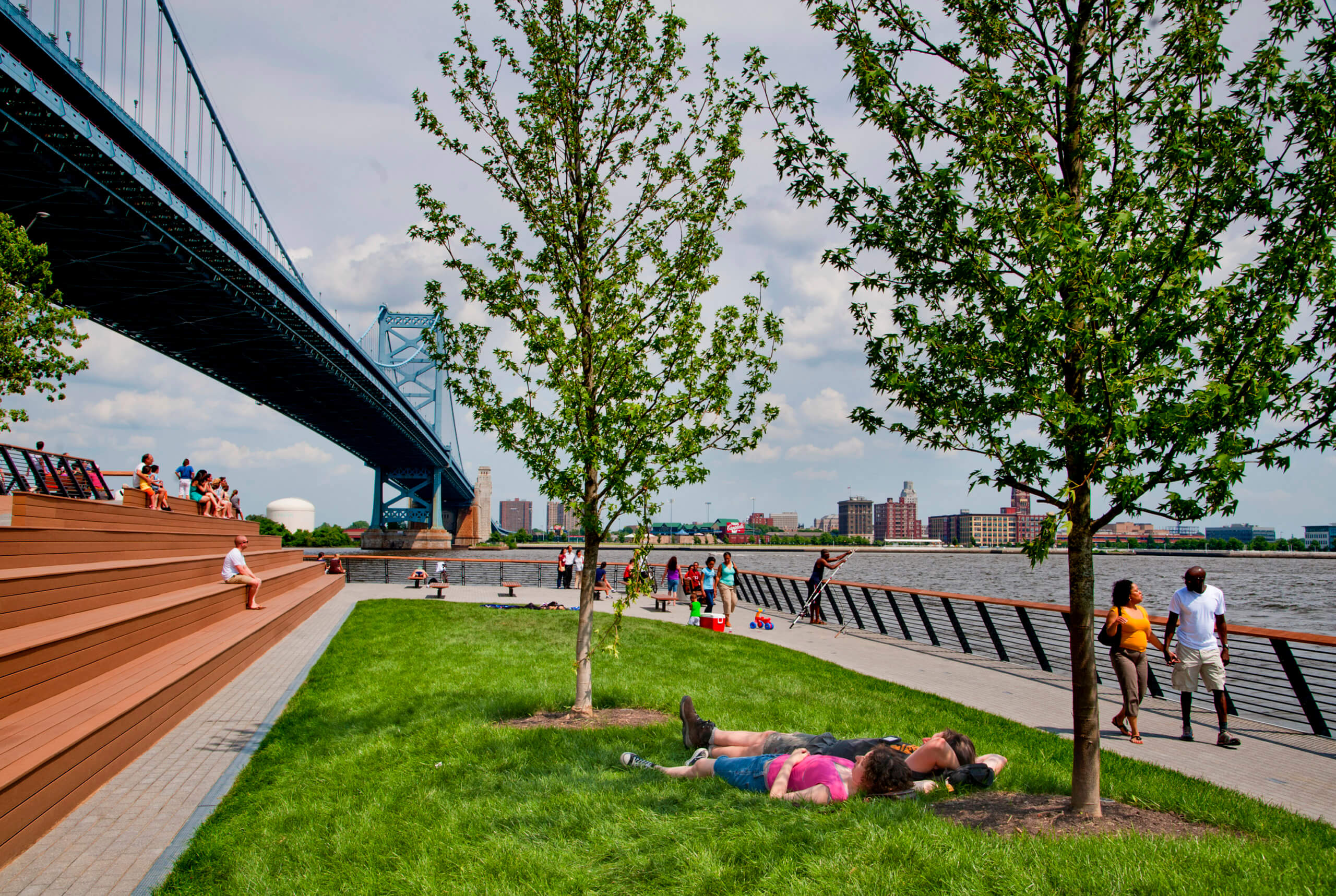
Opened in 2011, the two-level Race Street Pier offers stunning views of the Delaware River and the Benjamin Franklin Bridge, which connects Philadelphia to New Jersey. The tree-lined park boasts a sky promenade, woodland gardens and an expansive lawn.
Conventions can have a major footprint on their host city. That’s why Philadelphia and its partners are making a commitment to sustainability. Our team can help planners integrate sustainability into their meetings and events.
The Pennsylvania Convention Center
The Pennsylvania Convention Center is one of the leaders in convention sustainability, having earned LEED Gold status and GBAC STAR accreditation. Even the art that decorates the Center is sustainable — with pieces made from recycled air ducts, bicycle tires, and phone books. Additional sustainability practices include:
- Energy saving reflective roof
- Energy efficient LED lighting
- Innovative cooling systems
- Reduced water use
- Safe cleaning products
- Expanded recycling initiatives
- Streamlined management of HVAC, lighting, power, elevators and escalators
Philadelphia’s community of commerce, innovation and academic excellence has attracted talented students, scholars, researchers, professionals and entrepreneurs, providing a wealth of industry leaders and experts to enlist as speakers or panelists for your next meeting or event. PHL Life Sciences can provide access and connections to this substantial network.
Contact PHL Life Sciences for introductions for your Philadelphia meeting.
